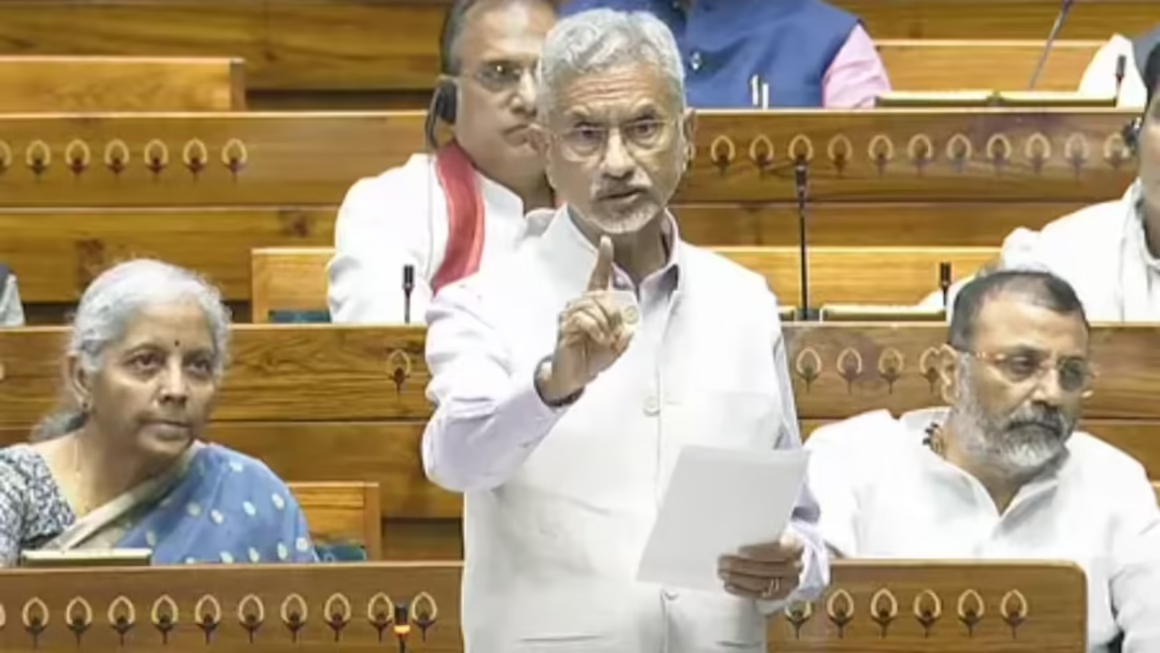
From Career Diplomat to Strategic Heavyweight
A decade ago, most foreign‑policy conversations in New Delhi focused on how India could balance relations between Washington and Beijing. That caution began to fade the day Dr Subrahmanyam Jaishankar—a Princeton‑educated career diplomat and former Foreign Secretary—took over as External Affairs Minister in 2019. Armed with data, historical memory, and dry wit, he has delivered crisp, quotable rebuttals that defend Indian interests and, in the process, redefine how the world listens to India.
This article revisits eight standout moments when Jaishankar “held the guard,” offered a sharp, fact‑based reply, and signalled a new, unapologetic phase in Indian diplomacy.
1. “Europe Has to Grow Out of That Mindset” — GLOBSEC Bratislava, June 2022
Context: Russia’s invasion of Ukraine prompted Western capitals to pressure New Delhi to abandon its strategic neutrality. At the GLOBSEC security forum in Bratislava, a moderator asked why India would not pick sides.
Jaishankar’s Reply:
“Somewhere Europe has to grow out of the mindset that Europe’s problems are the world’s problems, but the world’s problems are not Europe’s problems.”
Why It Mattered: The remark flipped the script, highlighting selective empathy in Western strategic discourse. European leaders later echoed the point—German Chancellor Olaf Scholz even quoted the line at the Munich Security Conference in 2024, conceding that Jaishankar “has a point.”
Schooling Reporters on Russian Oil — Washington DC, April 2022
Context: During a joint press conference after the India‑US “2 + 2” dialogue, an American journalist suggested that New Delhi was funding Moscow’s war by buying discounted Russian crude.
Jaishankar’s Reply:
“Our total purchases for the month would be less than what Europe buys in an afternoon.”
Why It Mattered: With one statistic, he exposed a double standard—Western nations importing far larger volumes of Russian energy while lecturing India on moral choices.
The “Rules‑Based Order” Question — Raisina Dialogue, April 2022
Context: Western academics lamented Russia’s breach of international norms. Jaishankar reminded them of Asia’s own unaddressed security challenges.
Jaishankar’s Reply:
“When the rules‑based order was challenged in Asia, the advice we got was ‘do more trade’.”
Why It Mattered: The line underscored that universal principles cannot be applied selectively, nudging Europeans toward a more coherent Indo‑Pacific policy.
Calling Out Pakistan at the UN General Assembly — September 2023
Context: Pakistan’s UN envoy once again raised the Kashmir issue and accused India of human‑rights violations.
Jaishankar’s Reply:
“Actions will certainly have consequences. Cross‑border terrorism will not be tolerated.”
Why It Mattered: The warning showed India’s willingness to confront, rather than merely rebut, narratives at global platforms—marking a decisive break from the deferential tone of the 1990s and early 2000s.
The Soros Riposte — Munich Security Conference, February 2023
Context: Billionaire philanthropist George Soros claimed Indian democracy was in peril and hinted at regime change.
Jaishankar’s Reply:
“He is old, rich, opinionated—and dangerous.”
Why It Mattered: The blunt dismissal signalled zero tolerance for what New Delhi perceives as foreign attempts to influence India’s internal politics.
Codifying the Sindoor Doctrine — Lok Sabha, May 2025
Context: After precision strikes (codenamed Operation Sindoor) against terror camps across the border, Parliament demanded clarity on India’s escalation thresholds.
Jaishankar’s Statement:
He laid out a five‑point doctrine:
- No sanctuary for terrorists.
- Proxy forces will be treated as combatants.
- Nuclear blackmail will not deter Indian action.
- Talks and terror cannot coexist.
- India reserves the right to act pre‑emptively when credible threats emerge.
Why It Mattered: By articulating a red‑line policy on the parliamentary floor, the minister institutionalised India’s muscular counter‑terror posture.
Europe Echoes the Message — Munich Security Conference 2024
Context: In his opening address, German Chancellor Olaf Scholz referenced Jaishankar’s Bratislava line about Europe’s mindset.
Significance: A G7 leader publicly validating an Indian minister’s critique signalled how New Delhi’s rhetoric now shapes Western policy debates.
Mindset of No One’s Lackey” — Ongoing Media & Think‑Tank Exchanges
Across dozens of interviews, Jaishankar consistently rejects Cold‑War binaries and attempts to pigeonhole India into any single geopolitical camp.
Representative Reply:
“India is smart enough to have multiple options.”
Why It Mattered: The phrase encapsulates India’s doctrine of strategic autonomy—engage all, align with none.
Common Threads in Jaishankar’s Diplomac
A New Vocabulary for Indian Statecraft
Dr S. Jaishankar’s interventions do more than clap back at critics; they articulate a doctrine of sovereign equality and strategic autonomy that resonates far beyond South Block. Whether challenging Euro‑centrism, exposing energy hypocrisy, or codifying counter‑terror thresholds, he has positioned India as a confident shaper—rather than a passive subject—of 21st‑century geopolitics.
For a nation once cautious about grandstanding, Jaishankar’s calibrated assertiveness heralds a diplomatic style fit for an era in which India’s economic heft and geopolitical stakes are simply too large to whisper.
FOR MORE BLOGS – beyondthepunchlines.com

 Add to favorites
Add to favorites





